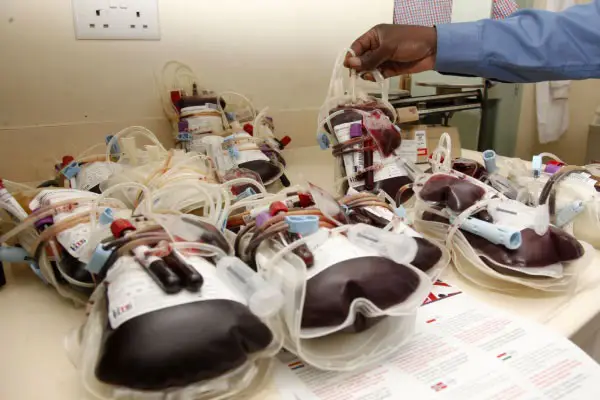Transfusion professionals (hematologists), policymakers, and key stakeholders are set to convene in Uganda during the Africa Society for Blood Transfusion Congress (AFSBT), with the aim of improving transfusion safety worldwide.
Dr. Dorothy Kyeyune, the Chief Executive Officer of Uganda Blood Bank Service, while addressing journalists at the Uganda Media Centre on February 12, 2024, said that Uganda will have the privilege to host the 11th AFSBT at Speke Resort Munyonyo from March 4–7, 2024, under the theme “Safe and Sustainable Blood Transfusion Services in Africa: Adopting Global Innovations and Technology Advancements in Blood Transfusion Services.”
According to Kyeyune, Ugandans and the health sector will benefit from the event because it provides a forum for sharing knowledge, insights, and ideas while exploring the strategies and technological advancements for the preservation of blood transfusion services in Africa.
“Notably, the Congress offers unparalleled networking opportunities among professionals in the field, fostering collaboration and collective action towards enhancing blood transfusion practices across the continent,” Kyeyune said.
She called upon scientists worldwide to attend the event in order to learn how to ensure the availability of safe blood for Ugandans.
The Uganda Blood Transfusion Service (UBTS), which operates under the Ministry of Health, aims to play a key role in ensuring the availability, accessibility, and appropriate use of safe blood and blood components nationwide, increasing blood supply, and promoting the clinical use of safe blood.
The International Society of Blood Transfusion (ISBT), under the vision of a world of safe and sufficient blood, is a scientific society that was founded in 1935 and has advanced into an international society where hematologists from over 100 countries unite to share knowledge about improving the safety of blood transfusion worldwide. The non-state actor in official relations with WHO has 15 working parties whose group members work towards promoting science, research, and best practices in their specific areas of expertise across the transfusion chain while advocating for the welfare of blood donors and patients.















